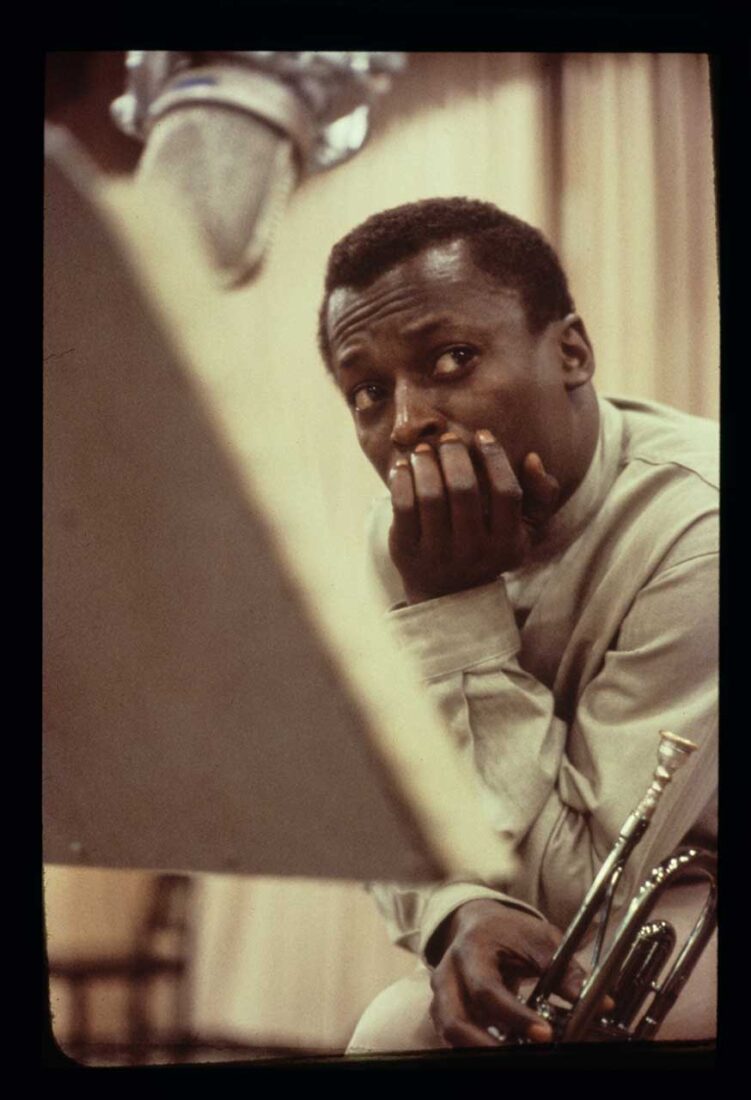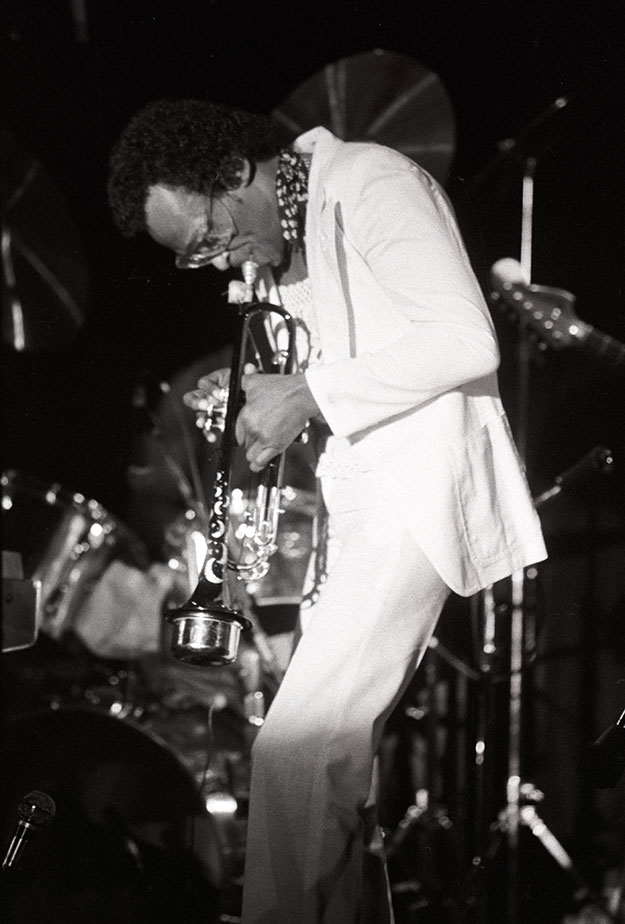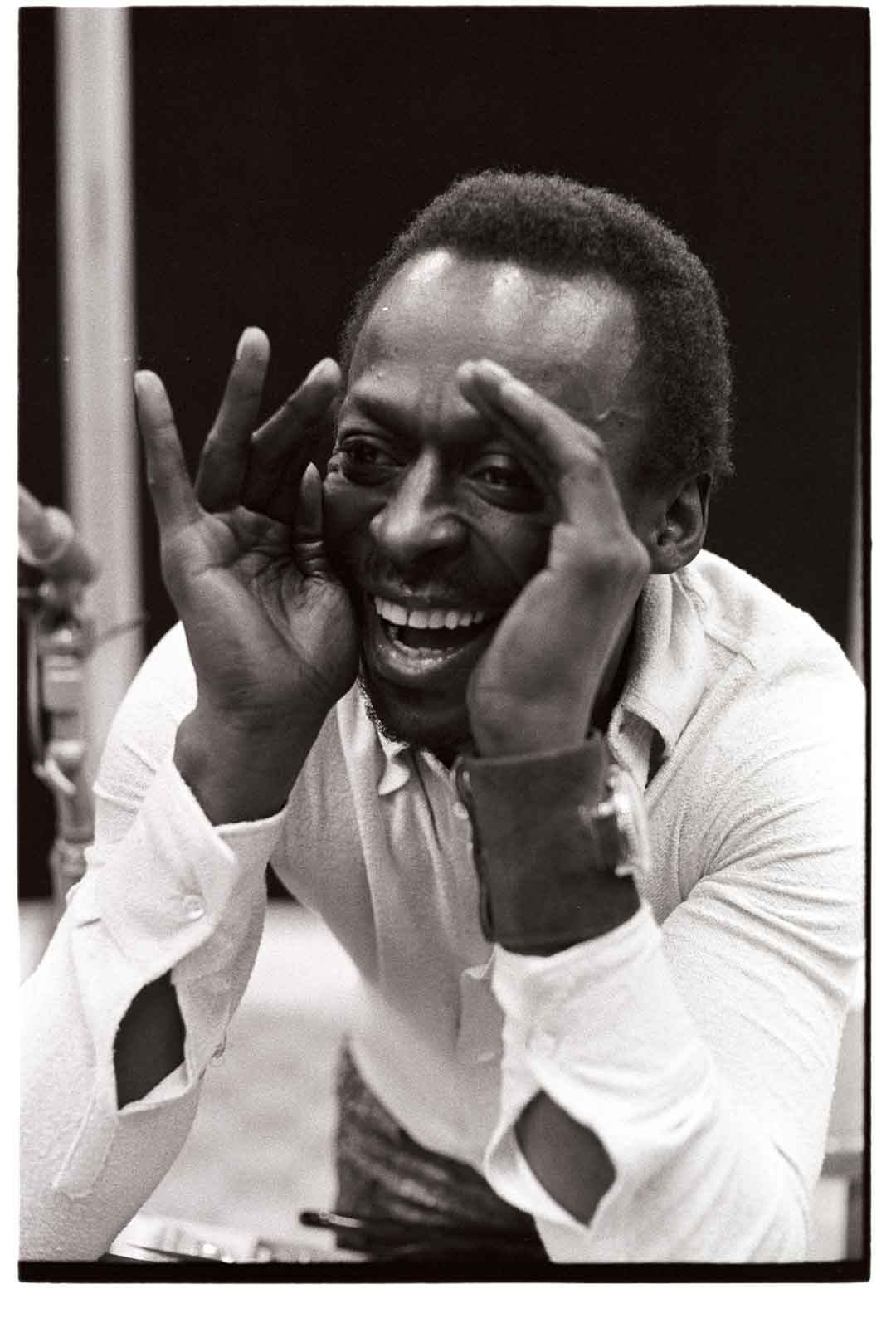Sir Miles Dewey Davis, III

In doing so, Miles became the standard bearer for successive generations of musicians, shaped the course of modern improvisational music more than a half-dozen times. This biography attempts to explain those paradigm-shifts one after another, through his recordings and major life changes.
The factors leading to that process are now the foundation of the Miles Davis legend: the dentist’s son born in 1926 to middle-class comfort in East St Louis. The fresh acolyte learning trumpet in the fertile, blues-drenched music scene of his hometown. The sensitive soul forging a seething streetwise exterior that later earned him the title, Prince Of Darkness. The determined teenager convincing his parents to send him to New York’s famed Juilliard School of Music in 1944, a ploy allowing him to locate and join the band of his idol, bebop pioneer Charlie Parker.

Miles’ group shifted and morphed through the early ‘60s until he settled for a four-year run with his classic quintet, a lineup that is still hailed today as one of the greatest and most influential jazz groups of all time. Their albums together — from Miles Smiles, ESP and Nefertiti, to Miles In The Sky, and Filles de Kilimanjaro — traced a pattern of unparalleled growth and innovation.
Had Miles stopped his progress at that point, he’d still be hailed as one of the greatest pioneers in jazz, but his creative momentum from the end of the ‘60s into the ‘70s would not let up. He was listening to the world around him — the amplified explosion of rock bands and the new, heavy-on-the-one funk of James Brown and Sly & The Family Stone. From the ambient hush of In A Silent Way, to the strange and unsettling – yet wildly popular Bitches Brew, he achieved another shift in musical paradigm and a personal career breakthrough.
By the end of 1975, Miles was tired – and sick. A period of seclusion ensued, full years to deal with personal demons and health issues, bouncing between bouts of self-abuse and boredom. It was the longest time Miles had been off the public radar – only amplifying the appetite for his return.

Those titles proved Miles’ farewell, still pushing forward, still exploring new musical territory. Throughout his career, he had always resisted looking back, avoiding nostalgia and loathing leftovers. “It’s more like warmed-over turkey,” the eternal modernist described the music of Kind of Blue twenty-five years after recording it. Ironically, in 1991, only weeks after performing a career-overview concert in Paris that featured old friends and collaborators from as early as the ‘40s, he died from a brain aneurysm.
Like his music, Miles always spoke with an economy of expression. And for Miles, it had to be fresh, or forget it. “I don’t want you to like me because of Kind of Blue,” he insisted. “Like me for what we’re doing now.”
